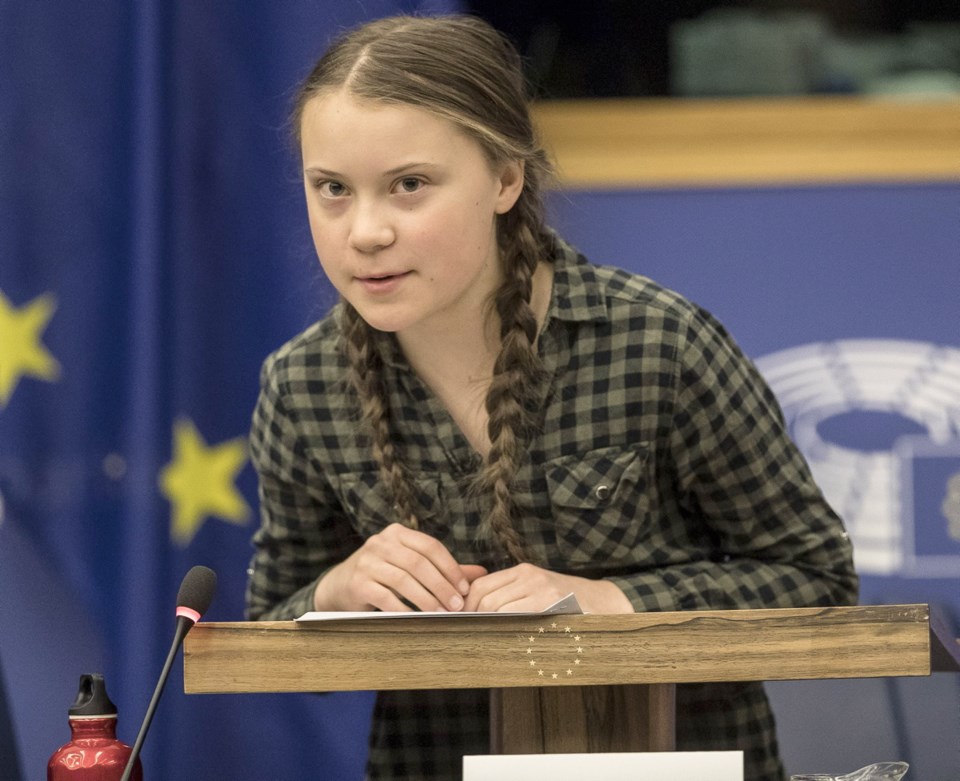"Stop denying our Earth is dying,” read a poster held by a young woman taking part in a protest by the Extinction Rebellion group outside the BBC headquarters in London recently.
Young people can see what is coming, and they are becoming mad as hell and are not going to take it any more. Greta Thunberg, the remarkable young Swedish woman who routinely talks sense to the world’s leaders, has ignited a series of protests over climate change by young people all over the world.
In Victoria, we have not only seen high school, college and university students organizing “climate strikes,” but Extinction Rebellion taking to the streets to protest against the banks that invest in industries that harm the Earth and undermine the future for young people.
Young people are right to be mad as hell, because while the planet as a whole is not literally dying, significant parts of the biosphere are. We are losing coral reefs, forests, insects and many species of vertebrates at an alarming rate. In fact, we have triggered a sixth, human-induced “Great Extinction” of species and we are changing key natural Earth systems — our life-support systems — in ways that threaten the well-being of myriad species, including ourselves.
But while the evidence is clear — and increasing on an almost daily basis — much of our political and corporate leadership in B.C., Canada and around the world is in denial. It was to them that this young woman’s appeal was directed. Troublingly, significant segments of the electorate are also in denial, and are being whipped up by “the Resistance.” Conservative leaders in Canada and around the world and their fossil-fuel and other corporate allies do very well out of the present arrangements and don’t want to see the system changed.
Unlike the older generation that currently make decisions affecting the future, young people have a real stake in that future; after all, they will be there, whereas my generation will not. In fact, arguably, they — not the generation now in power — should be making decisions that will have an impact on their future; they should certainly be fully, meaningfully and consistently engaged in making those decisions.
But young people can see, I think, that what we face — climate change and more — changes everything, as Naomi Klein’s book title noted a few years ago. And if everything has to change — our values, the economy, our social arrangements, our whole way of life — then there are not only great challenges ahead, but great opportunities.
So they are not only protesting, they are taking action. One obvious way is in what they eat. There is a growing shift toward a more vegetarian and even vegan diet. Then there is the sharing economy, with not only cars but much else being shared. A couple of months ago, I spoke at a forum on co-living organized by the Firelight Initiative, a group of young women interested in exploring alternative, healthier and more sustainable ways of living.
These days, when I talk to audiences about the global ecological crisis and its health impacts, I make a point of also talking about the exciting opportunities I see ahead, especially for young people. When everything has to change, we are going to need not just scientific and technological inventors and innovators, but social, cultural and economic inventors and innovators.
While we are still going to need activists who can take to the streets and keep the movement alive, we need spiritual leaders and philosophers who can help reset our moral compasses and artists who can get the message out in ways that transform our culture. And we need the new breed of green and social entrepreneurs who will re-make the economy, doing well while doing good.
Perhaps the most effective way to counter denial is simply to show that there is an alternative, it works and it’s better than what we have now — build a better mousetrap, in other words. In the years ahead, we need to encourage and support young people in re-inventing our communities and societies, and in building that better mousetrap, be it for healthy and sustainable food, housing, transportation, or other goods and services.
Dr. Trevor Hancock is a retired professor and senior scholar at the University of Victoria’s School of Public Health and Social Policy.



